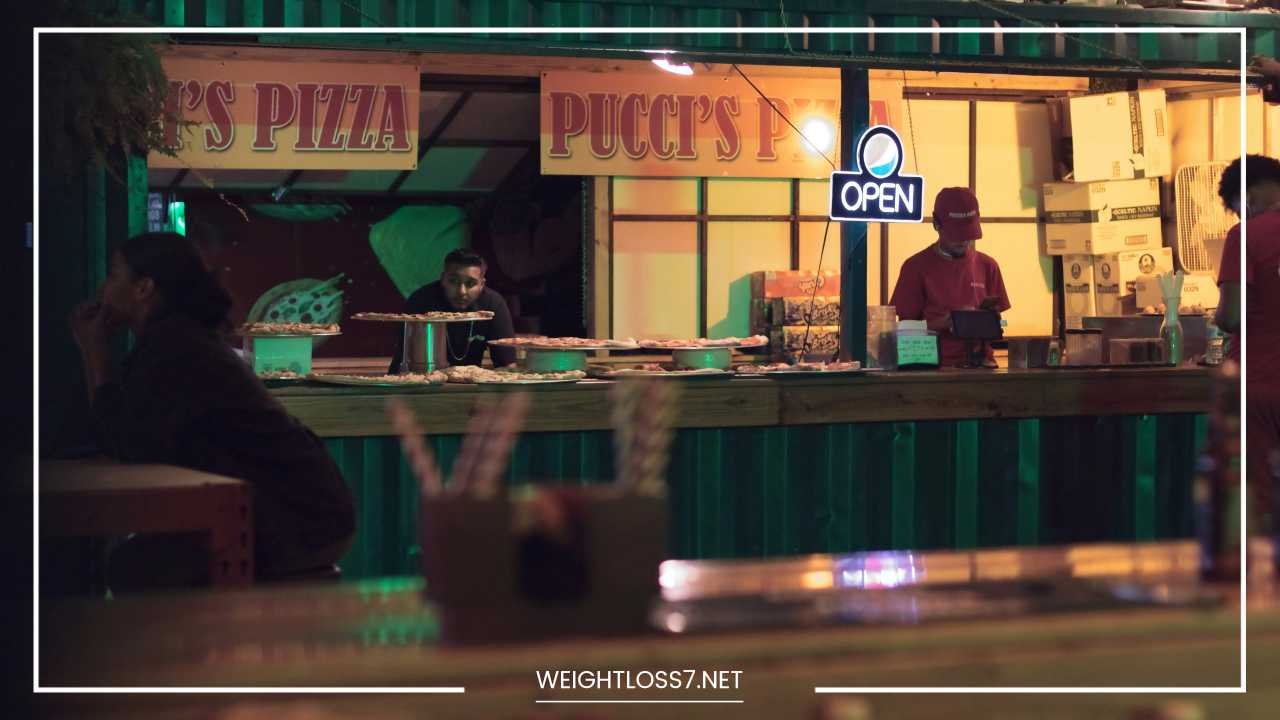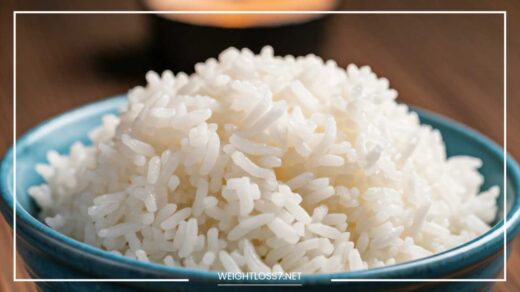Is It Bad to Eat Late at Night?

Late Night Eating
Is It Bad to Eat Late at Night? A Deep Dive into Dinner Decisions
The late-night fridge raid – a siren song for many of us. Whether it’s the stress of a long day manifesting in a craving for comfort food, or simply boredom leading to mindless snacking, evening nibbling can be a persistent temptation. But is indulging in these after-dark treats truly detrimental to our health?
The answer, like many things in nutrition, isn’t a simple yes or no. Let’s delve into the science behind late-night eating, explore the potential impacts on our health, and unpack strategies for developing healthy nighttime habits.
The Symphony of Sleep and Supper: The Science Behind It All
Our bodies operate on a natural 24-hour cycle called the circadian rhythm. This complex system influences everything from sleep patterns and hormone production to cellular repair and metabolism.
When it comes to food, the circadian rhythm plays a crucial role in how we process what we eat. Insulin sensitivity – the body’s ability to regulate blood sugar levels – is highest during the day and dips at night.
This means late-night meals may not be processed as efficiently, potentially leading to blood sugar spikes and increased fat storage.
Think of your digestive system as a well-oiled machine. During the day, it’s primed for action, efficiently breaking down food and absorbing nutrients.
But as night falls, this machine starts to wind down, prioritizing rest and repair over digestion. When we eat close to bedtime, this can lead to a digestive slowdown, resulting in heartburn, indigestion, and uncomfortable sleep.
The Potential Downsides of Delayed Dinners
While the occasional late-night snack might not be a dealbreaker, consistently indulging in after-dark meals can have some negative consequences:
-
Weight Gain: Studies suggest a correlation between late-night eating and weight gain, though the exact cause-and-effect relationship is still being explored. Factors like portion control, food choices, and overall calorie intake likely play a role. Here’s why:
- Disrupted Metabolism: Late-night meals can throw your metabolic processes into a loop. As mentioned earlier, insulin sensitivity is lower at night, which means your body may struggle to use the energy from food efficiently. This can lead to increased fat storage and weight gain over time.
- Poor Food Choices: Late-night cravings often steer us towards unhealthy, calorie-dense options like sugary snacks or processed foods. These foods are not only low in nutrients but also high in calories, further contributing to weight gain.
- Increased Nighttime Activity: The act of eating itself can stimulate the body and make it harder to fall asleep. Additionally, discomfort from indigestion can lead to restless sleep, impacting your overall energy expenditure and potentially leading to weight gain in the long run.
-
Blood Sugar Issues: As mentioned earlier, late-night meals can disrupt insulin sensitivity, leading to blood sugar imbalances. This can be especially concerning for those with pre-diabetes or type 2 diabetes, as it can worsen blood sugar control.
-
Heartburn and Indigestion: Eating close to bedtime can trigger heartburn and indigestion, especially for those prone to acid reflux. This is because lying down after eating can cause stomach acid to back up into the esophagus, leading to a burning sensation and discomfort.
-
Sleep Disruption: Discomfort from digestion or blood sugar fluctuations can make it harder to fall asleep and stay asleep, impacting overall sleep quality. Sleep deprivation is linked to a cascade of negative health consequences, including impaired cognitive function, mood swings, and a weakened immune system.
Beyond the Basics: Nuances of Nighttime Nibbling
It’s important to consider individual factors when evaluating the impact of late-night eating. Here are some key considerations:
-
Shift Workers and Irregular Schedules: People who work nights or have irregular schedules may need to adjust their eating patterns accordingly. Listening to your body’s hunger cues and prioritizing sleep hygiene become even more crucial in these situations.
-
Pre-existing Conditions: Certain medical conditions, such as diabetes or gastroesophageal reflux disease (GERD), can be exacerbated by late-night eating. Consulting with a healthcare professional for personalized guidance is essential.
-
Not All Snacks Are Created Equal: The occasional healthy late-night snack likely won’t derail your health goals. If a late-night bite is unavoidable, opt for easily digestible, nutrient-rich options like:
- Fruits with a sprinkle of nuts or nut butter
- Vegetables with a bit of hummus
- A small yogurt parfait with berries and granola
- A slice of whole-wheat toast with avocado
Crafting a Healthy Nighttime Routine: Strategies for Success
Here are some practical strategies to cultivate healthy nighttime habits and avoid the pitfalls of late-night eating:
-
Plan Your Meals: Resist the urge to become a grazer at the mercy of your fridge’s contents. Schedule meals and snacks throughout the day to ensure you’re getting enough nutrients and avoiding excessive hunger pangs later. Aim for a balanced approach that incorporates whole grains, lean protein, healthy fats, and fruits and vegetables. This will help regulate your blood sugar levels and keep you feeling satiated throughout the day.
-
Eat a Balanced Dinner: Don’t skimp on dinner! Focus on incorporating whole foods like lean protein sources (chicken, fish, beans), complex carbohydrates (brown rice, quinoa, sweet potatoes), and healthy fats (avocado, nuts, olive oil) at your evening meal. This combination provides sustained energy, promotes satiety, and minimizes cravings later in the evening.
-
Mind the Portion Sizes: Pay attention to portion control, especially at dinner. Don’t overeat, even if you know you might have a late-night snack. Smaller, more frequent meals throughout the day may help regulate blood sugar and prevent overindulgence at night.
-
Set a Cut-off Time for Eating: Establish a reasonable time to stop eating before bed, ideally 2-3 hours beforehand. This allows your body ample time to digest food before hitting the hay. Consistency is key here – try to stick to your chosen cut-off time most nights of the week.
-
Listen to Your Body: Don’t ignore your hunger cues, but be mindful of them. Are you truly hungry, or are you mistaking boredom, stress, or thirst for hunger pangs? If genuine hunger strikes at night, have a small, healthy snack. But don’t use food as a coping mechanism for emotions.
-
Relax and Unwind: Develop a relaxing bedtime routine that helps you de-stress and unwind before bed. This could include taking a warm bath, reading a book, practicing light yoga or meditation, or listening to calming music. Engaging in these activities can promote relaxation and reduce the urge to resort to emotional eating.
-
Address Underlying Issues: If you find yourself constantly resorting to late-night snacks, consider the underlying reasons. Are you stressed? Do you have trouble sleeping? Addressing these root causes may be the key to breaking the cycle of late-night eating.
Beyond Food: Optimizing Your Sleep Environment
A healthy sleep environment plays a crucial role in promoting quality sleep and reducing the urge to snack at night. Here are some tips:
-
Create a Sleep Sanctuary: Make sure your bedroom is dark, quiet, cool, and clutter-free. Invest in blackout curtains, an earplug mask, and a comfortable mattress and pillows.
-
Minimize Screen Time Before Bed: The blue light emitted from electronic devices like smartphones and laptops can disrupt your sleep cycle and suppress melatonin production, the hormone that regulates sleepiness. Avoid using these devices for at least an hour before bedtime.
-
Stick to a Sleep Schedule: Go to bed and wake up at consistent times each day, even on weekends. This helps regulate your body’s natural sleep-wake cycle and makes it easier to fall asleep and wake up feeling refreshed.
It’s All About Balance
There’s no single answer to the question of late-night eating. The occasional late-night snack likely won’t derail your health goals.
However, consistently indulging in after-dark meals, especially unhealthy choices, can have negative consequences for your weight, blood sugar control, digestion, and sleep quality.
By understanding the potential downsides and focusing on mindful choices, a balanced overall diet, and a healthy sleep routine, you can navigate your nighttime cravings and prioritize healthy sleep habits.
Remember, a little planning and consistency go a long way in creating a sustainable approach to late-night eating and promoting overall well-being.
Additional Tips:
- Stay Hydrated: Dehydration can sometimes be misinterpreted as hunger. Drinking plenty of water throughout the day can help curb cravings and promote satiety. Aim for eight glasses of water per day, and avoid sugary drinks before bed.
- Consider Herbal Remedies: Certain herbal teas like chamomile or lavender can promote relaxation and improve sleep quality, potentially reducing the urge to snack at night.
- Seek Professional Help: If you’re struggling to break the cycle of late-night eating or have concerns about your sleep habits, consult a registered dietitian or healthcare professional for personalized guidance.
Remember, a healthy relationship with food is all about balance. By making informed choices and prioritizing healthy sleep habits, you can create a sustainable approach to nighttime eating and achieve your overall health goals.
The Late-Night Eater’s Survival Guide: Practical Hacks and Recipes
While the focus should be on establishing healthy habits to minimize late-night cravings, there are situations where a nighttime snack might be unavoidable. Here are some survival strategies and recipe ideas to keep you on track:
Smart Snacking Strategies:
- Portion Control is Key: Even healthy snacks can be detrimental if overindulged in. Use small plates or portion out snacks beforehand to avoid mindless munching.
- Focus on Nutrient Density: Prioritize whole, unprocessed foods that are rich in protein, fiber, and healthy fats. These nutrients promote satiety and keep you feeling fuller for longer.
- Sweet Tooth Fix: Craving something sweet? Opt for naturally sweet options like fruits with a dollop of nut butter, a small piece of dark chocolate (at least 70% cacao), or a homemade fruit and yogurt parfait.
- Salty Cravings: If you’re yearning for something savory, air-popped popcorn with a sprinkle of herbs or spices, a small handful of roasted chickpeas, or a slice of whole-wheat toast with mashed avocado and a sprinkle of everything bagel seasoning can hit the spot without derailing your health goals.
- Beverage Awareness: Be mindful of what you drink at night. Avoid sugary drinks, caffeinated beverages, and alcohol, as they can disrupt sleep and potentially worsen cravings. Opt for herbal teas, water with a squeeze of lemon, or a glass of unsweetened almond milk.
Sample Recipes for Late-Night Snacking:
-
Mini Veggie Frittata Muffins: These bite-sized frittatas are perfect for meal prep and can be enjoyed hot or cold. Simply whisk together eggs with chopped vegetables like spinach, peppers, and onions. Pour the mixture into a muffin tin and bake until set.
-
Cottage Cheese with Berries and Chia Seeds: This protein-packed snack is simple yet satisfying. Combine a dollop of cottage cheese with your favorite berries and a sprinkle of chia seeds for added fiber and healthy fats.
-
Edamame Pods with Sea Salt: Edamame is a great source of plant-based protein and fiber. Steam or boil frozen edamame pods and sprinkle with a touch of sea salt for a healthy and satisfying crunch.
-
Greek Yogurt with Granola and a drizzle of Honey: Plain Greek yogurt provides a good dose of protein, while granola adds complex carbohydrates and healthy fats. Drizzle with a touch of honey for a touch of sweetness without going overboard on sugar.
-
Sliced Bell Peppers with Hummus: Bell peppers offer a satisfying crunch and are packed with vitamins. Pair them with hummus for a protein and fiber boost.
Remember: These are just a few ideas to get you started. There are countless healthy and delicious late-night snack options available. Explore different recipes and find what works best for your taste preferences and dietary needs.
The Importance of Mindfulness:
Mindful eating is a crucial aspect of healthy late-night snacking. Here are some tips to cultivate mindful eating habits:
- Slow Down and Savor: Eat slowly and savor each bite. This allows your body to register satiety cues and prevents overeating.
- Minimize Distractions: Put away your phone, turn off the TV, and focus on the act of eating. This allows you to be more present in the moment and tune into your body’s hunger and fullness signals.
- Practice Gratitude: Take a moment to appreciate the food you’re consuming. This simple act can enhance your enjoyment of the meal and promote a more mindful eating experience.
By incorporating these tips and strategies, you can navigate the world of late-night eating with more awareness and control.
Remember, the key is to focus on making informed choices, prioritizing a balanced diet, and establishing healthy sleep habits for optimal well-being.

















